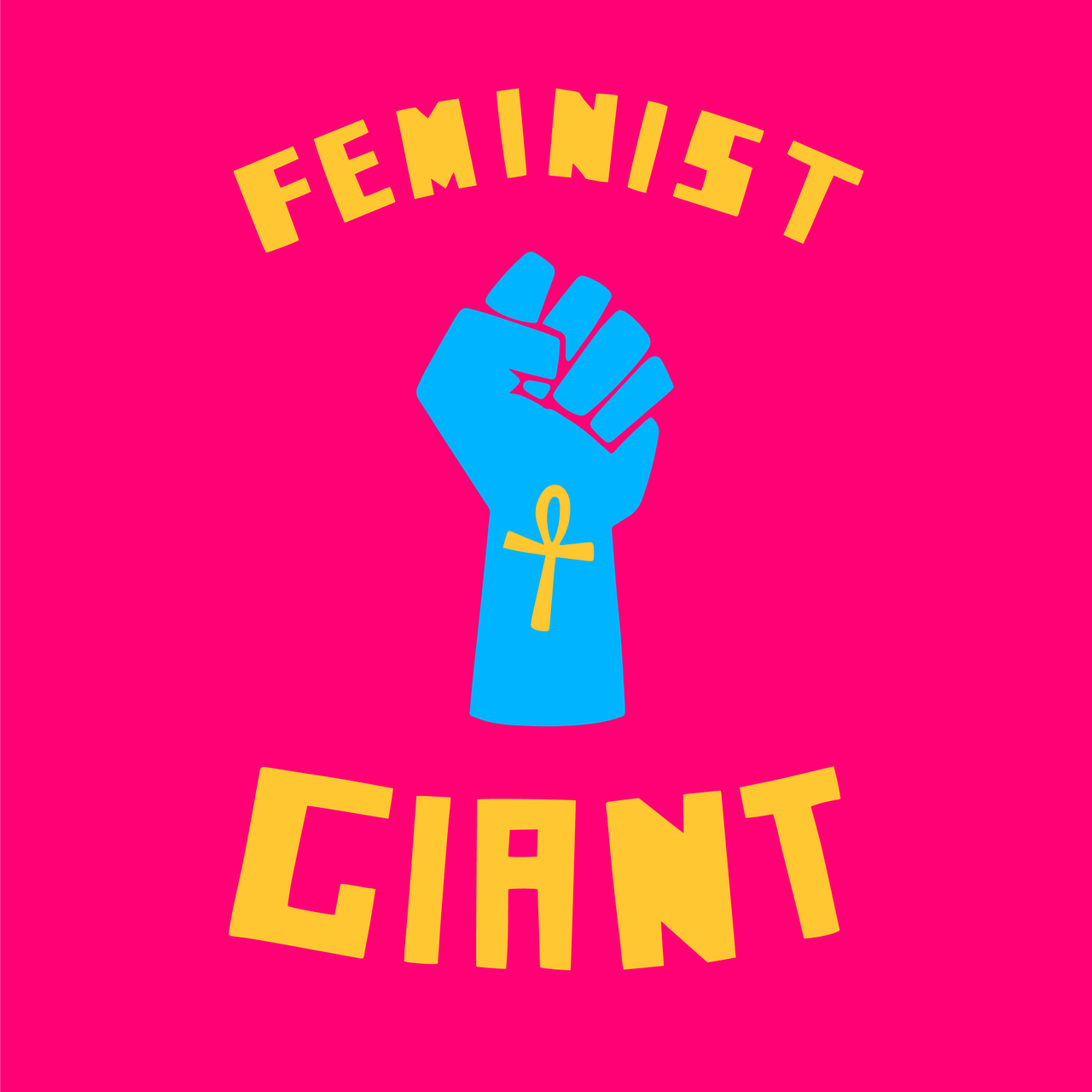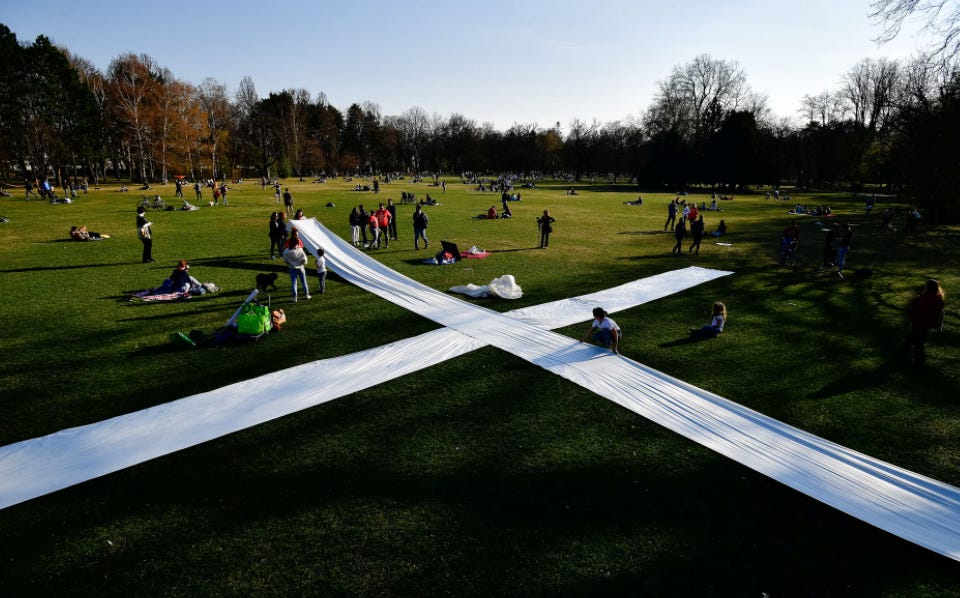Global Roundup: Italian Court Recognizes Non-Binary Identities, Starblanket to Honour Missing and Murdered Women, Girls and 2-Spirit People, Hungarian Voters Urged to Invalidate Homophobic Referendum
Curated by FG intern Lydia Georgison
People take part in the annual Pride march, in Rome, June 26, 2021. The banner reads “Pride” in Italian. Credit: Gregorio Borgia/AP Photo via Xtra
An Italian court has recognized non-binary identities in a historic ruling that could set a significant precedent. Supporters of LGBTQ+ equality hope the decision will set a precedent that will encourage lawmakers to expand rights and protections for people who identify outside of the gender binary.
Earlier this month, the Court of Rome paved a pathway for a plaintiff to identify themselves as non-binary in legal documents. According to the queer website Gay.It, the March 7 declaration, is the first of many steps for the plaintiff, identified only as “Alex,” who now hopes to correct the gender marker listed on their birth certificate and other identity documents.
Alex’s attorney, Giovanni Guercio, said his client was overwhelmed by the news and kept repeating, “thank you, thank you, thank you, as if paralyzed with joy.”
It is a thank you that those who are not born in this condition cannot understand. It is like a blind man who regains his sight. Those who have always had it cannot understand. – Giovanni Guercio
Alex’s legal team hopes the decision will serve as a “pilot case” for greater legal recognition of trans and non-binary identities. While trans-Italians have been permitted to correct their legal gender since 1982, they are still forced to clear numerous bureaucratic hurdles.
According to the U.K. advocacy group Stonewall, name and gender marker corrections are a “two-step process” that entails seeking a court’s permission and, in some cases, undergoing gender-affirming surgery.
Guercio said that Alex seeks to have their identity recognized without meeting the surgical requirement. Rather than having their personhood pathologized, he said Alex was “determined” to affirm their “right to [their] own gender identity.”
This win is a milestone in my country since the court has always claimed for the person to have been submitted to hormonal therapy before. – Giovanni Guercio.
The victory follows several recent watershed moments for non-binary people across the globe. Mexico issued its first-ever non-binary birth certificate in February. The Colombian Constitutional Court ruled in March that citizens have the right to opt out of choosing male or female on legal documents.
The latter ruling made Colombia the first Latin American nation to legally recognize non-binary identities. Despite these steps forward, Italy has much work left to do if it hopes to ensure full equality for LGBTQ+ people. Although the country has permitted same-sex couples to enter civil unions since 2016, full marriage equality has yet to be legalized due to opposition from the Catholic Church.
Lobbying from the Vatican was instrumental in killing a historic hate crimes bill, which was shelved in October over fears that it would constrain the free speech of Catholics opposed to LGBTQ+ rights.
Human rights advocates in Italy continue to push forward despite these challenges. In April, Italy is set to celebrate its first-ever LGBTQ+ History Month, which will honour the birth of the country’s LGBTQ+ civil rights movement and the contributions of queer and trans people to Italian life and culture.
Some of the squares made by family members of missing and murdered Indigenous women, girls and two-spirit people for the starblanket. (Submitted by Linda Johnson) via CBC
People in Saskatchewan, Canada, came together last month to create a meaningful starblanket to honour the lives and legacies of missing and murdered Indigenous women, girls and Two-Spirit (MMIWG2S) people.
The Starblanket Collaboration is part of the Re-Igniting Sacred Fires initiative by the Aboriginal Friendship Centres of Saskatchewan (AFCS).
In February, families and survivors of MMIWG2S people came together for sessions in four Saskatchewan cities to create squares to pay tribute to their loved ones. The pieces were then put together in one joint commemorative blanket.
Having our blanket makers be able to weave each piece together for one blanket is very meaningful. - Linda Johnson, program manager at AFCS.
According to Johnson, providing this opportunity to families who have lost loved ones was necessary. People came together between Feb.17 and 24, 2022, at the Saskatoon Indian and Metis Friendship Centre, the Battleford Indian & Metis Friendship Centre, Prince Albert Indian & Metis Friendship Centre, and the New Yotina Friendship Centre in Regina, according to AFCS.
One of the participants in Prince Albert was Sara Daniels from James Smith Cree Nation. She said six of her close family members had been murdered, including her brother and sister.
They were loved and … they're special to me. I like that we could come together and just empower one another and honour our loved ones. - Sara Daniels
The square Daniels made for the star blanket depicts a feather that breaks off into flying birds. The piece also includes the names of her loved ones who were taken. The Star blanket Collaboration was the last project of the AFCS’ Re-Igniting Sacred Fires and brought the initiative to a close, explained Johnson.
She said that elders and support staff were on-site during the four sessions to assist the blanket makers.
We were very thankful that we did have the mental health support there. There was a lot of laughs, there was crying. We hope that relationships were built so that these families know … they're not alone, and there's many people that, unfortunately, are going through this. - Linda Johnson
The individual squares have since been woven together, and the star blanket has been made, said Johnson. Now they want to speak with elders for more guidance before unveiling the blanket. Daniels is looking forward to seeing the finished star blanket. However, she knows it will be emotional.
It'll help with our healing process..To know that we're honouring our loved-ones and that people will get the chance to hear their stories. - Linda Johnson
Activists shape two Xs with white canvas to encourage Hungarians to place an invalid ballot at a Fidesz proposed referendum on April 3rd as a form of protest against the referendum on LGBTQ issues, in Budapest, Hungary March 27, 2022. REUTERS/Marton Monus
Prime Minister Viktor Orban, a nationalist, facing a tough battle to be re-elected for a fourth consecutive term, has proposed a referendum on ruling party legislation limiting schools’ teaching about homosexuality and transgender issues.
The referendum is seen as a riposte to the European Commission, which launched legal action against Budapest over the law passed last year that bans the use of materials seen as promoting homosexuality and gender change at schools, ostensibly as a measure to prevent child abuse.
Brussels said it was discriminatory and contravened European tolerance and individual freedom values. Orban, who has sought to promote social policies that he says safeguard Christian values against Western liberalism, put gender issues and what he calls LGBTQ propaganda in schools at the forefront of his campaign.
While the message resonates with conservative voters, rights groups protested on Sunday, holding up two giant “X” shaped signs in Budapest to urge people to cast invalid votes at the referendum by marking each question on their paper twice. Without at least 50 percent of the electorate casting a valid vote, the proposal cannot be deemed accurate.
This discriminating propaganda referendum ... only further strengthens the division in society and increases prejudices against LGBTQ people. - Luca Dudits, a spokesperson of rights group Hatter Tarsasag
Hungarians will be asked whether they support holding sexual orientation workshops in schools without parents’ consent and whether they believe gender reassignment procedures should be promoted among children.
They will also be asked whether media content that could affect sexual orientation should be shown to children without any restrictions. The government has said it wanted to stop what it called LGBTQ propaganda in schools carried out with the help of NGOs to protect children.
Other passers-by said the referendum was wasting taxpayers’ money on a non-existent problem created by the government.
Certain parts of the society have been fooled with this, and now they think it is a real problem. Margit Rozsa
Lydia Georgison (she/her) is a first-year student at the University of Ottawa. She is passionate about becoming a feminist by learning and broadening her knowledge of topics that have to do with feminism. She spends most of her time studying in the field of criminology.
Lydia strongly believes the key to excellence within society is listening and learning from everyone’s opinions. She suggests that the key to a peaceful and accepting community is the result of educating ourselves on controversial topics.







